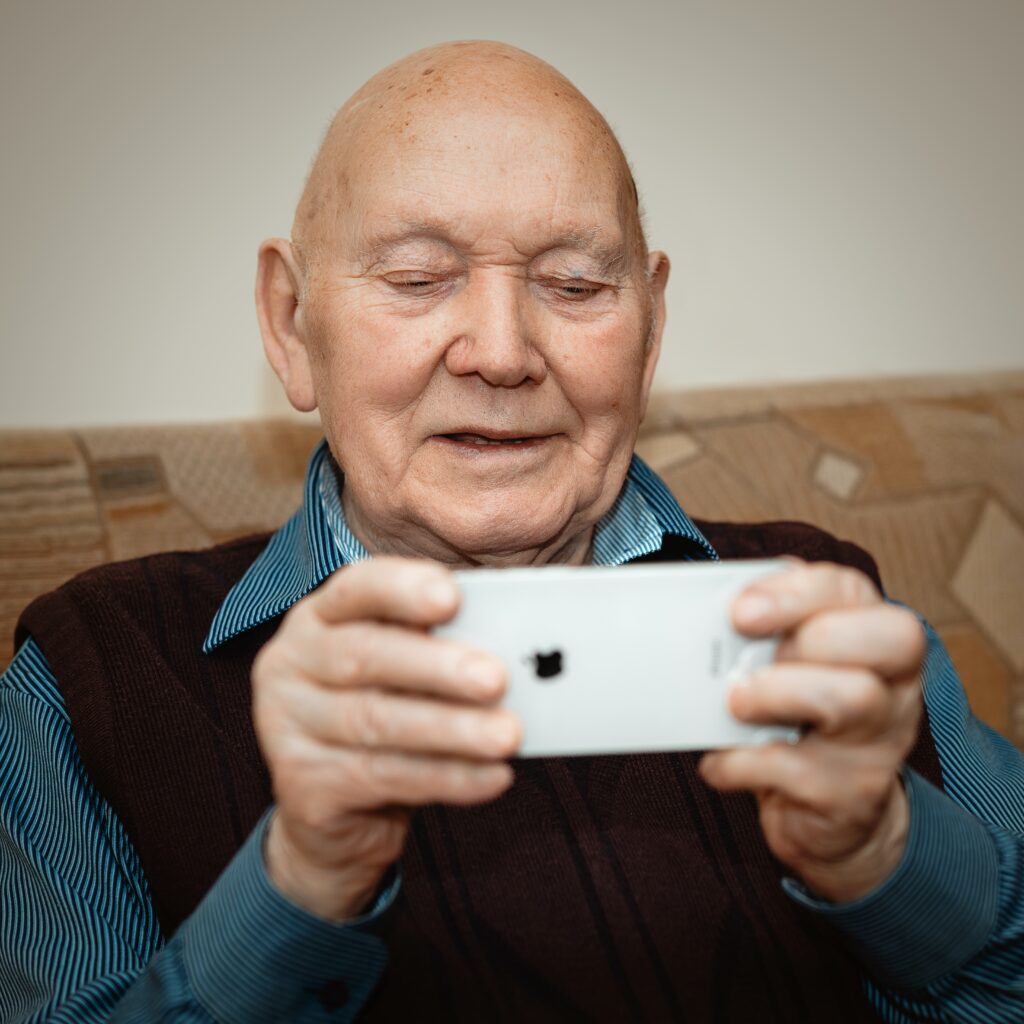According to a recent survey, 76% of adults over the age of 50 want to age at home. Yet, just 59% say they believe they will be able to stay in their current communities. Of that 59%, 46% anticipate being able to age in their current homes. While there is a long list of senior care affairs your family must tackle to help an aging loved one age in place, investing in technology for seniors should be at the top of the list.
The right technology has the power to instill in your elderly loved ones the confidence they need to live out their golden years in the family home. With the right apps, elderly persons can connect with friends and family, manage their medications and health care, control their finances, and stay safe, all through a single device. The question is, though, which apps for elderly parents are suitable for your loved one? Below are the top apps and devices geared toward helping individuals maintain their independence as they age.
Apps for Managing Medications
Prescription medication use has risen dramatically in the past two decades, with the number of medications taken by the average senior American more than doubling since 1999, from two to five. Seniors that take five drugs are on the low end. However, ambulatory seniors fill as many as 13 prescriptions each year. Among other polypharmacy causes, many seniors forget to take their medications or have them refilled on time. Doctors and pharmacists estimate that as many as 50% of prescriptions are taken incorrectly.
Certain apps, such as Medisafe, give seniors the tools they need to effectively manage their medications on their own. Upon downloading the app for your loved one, input their prescriptions and the timings for each. The app will then create a visual schedule for your loved one, complete with pictures of each medication and a list of potentially dangerous interactions. The app will remind the user when it is time to take medication and even alert you or another caregiver whenever your loved one misses a dose or when it’s time for a refill.
Other technologies, such as TabSafe, MedMinder, and ePill, will dispense medications for your loved one. These devices also deliver automated instructions regarding correct dosage and use.
GPS Systems for Tracking Dementia Patients
Studies show that dementia patients who remain at home live longer, healthier, and happier lives. Unfortunately, many families do not have the means to constantly monitor an elderly loved one’s every move. GPS tracking systems, such as GPS SmartSole or Theora Connect Wearable, can tell authorities precisely where your loved one is at should they wander.
Other technology for seniors, such as Amazon’s Care Hub, can give you snapshots of what your elderly parent is up to throughout the day. Through the app, you can monitor your loved one’s activity, converse with them throughout the day, and even receive alerts whenever they ask for help. You can also set inactivity alerts, just in case.
Personal Emergency Response Systems
Better known as “Help, I’ve fallen, and I can’t get up” buttons, PERS will alert connected devices and the authorities when an elderly person falls, experiences a health emergency, or experiences some other adverse event. Types of events these devices can alert for include flooding, fires, home invasions, and wandering.
Many of the traditional PERS devices are button-activated, meaning a senior had to hit a button to send for help. More advanced systems, however, feature automatic fall detection capabilities.
Covering the Cost of Technology for Seniors
Technology is changing the way people live, and it is making it easier than ever for seniors to age in place. It’s no wonder, then, that so many families are choosing to invest in apps for elderly parents. The keyword here, though, is “invest.”
Depending on your elderly parent’s needs, creating the type of technological infrastructure that will keep your loved one safe is an investment. Many families hope that their insurance will cover, if not all, at least half the cost. Unfortunately, this is rarely the case.
While you should always double-check with your insurance before you pay out of pocket for a system, know that Medicare Parts A and B, and Medigap, do not pay for medical alert systems. Some Medicare Advantage Plans do, but you will need to discuss what types of technology and how much your loved one’s policy will cover. The best chance you have of getting medical alert systems covered is if your loved one has long-term care insurance.
Why Embrace Medical Alert Technology
Regardless of whether your loved one’s insurance covers the cost, you and your family should make apps for seniors a top priority on your list of senior care items. Even out of pocket, the cost of implementing a full technological setup does not come close to the cost of long-term care. More importantly, however, technology can help your loved ones age in place, as they want, and safely, as you wish.

